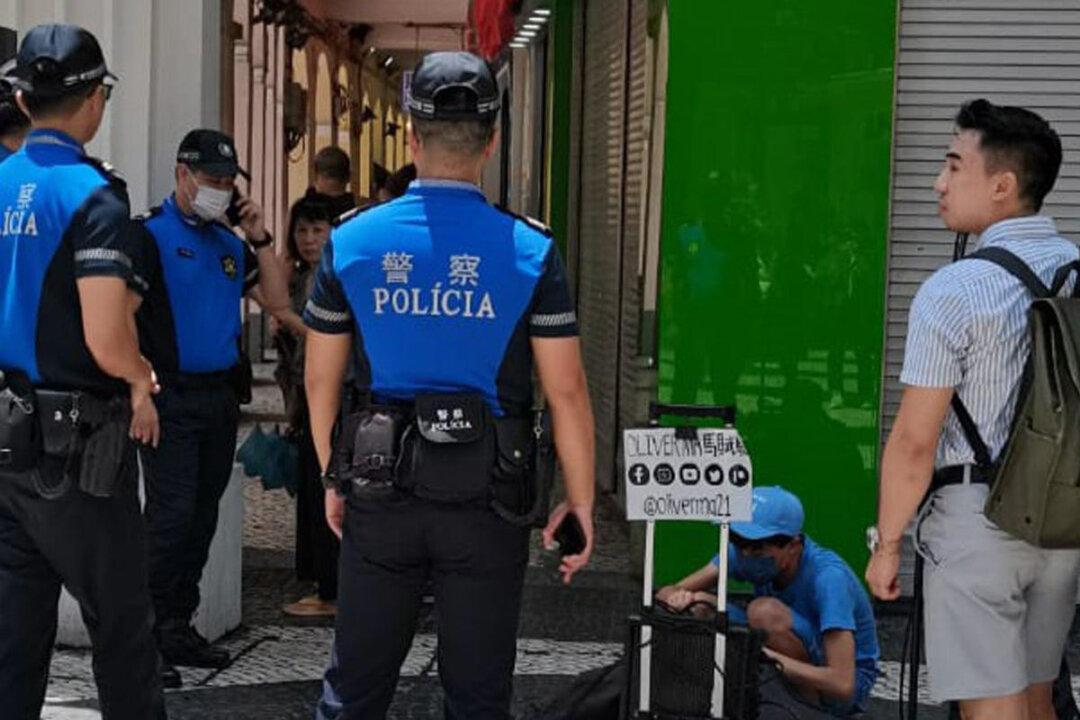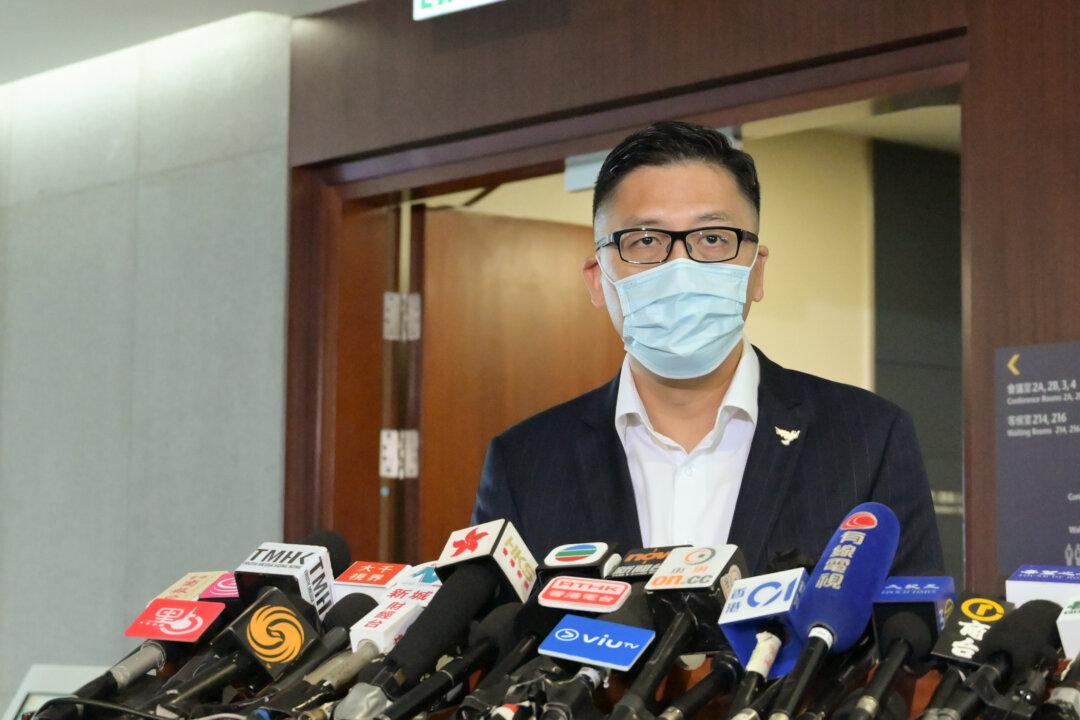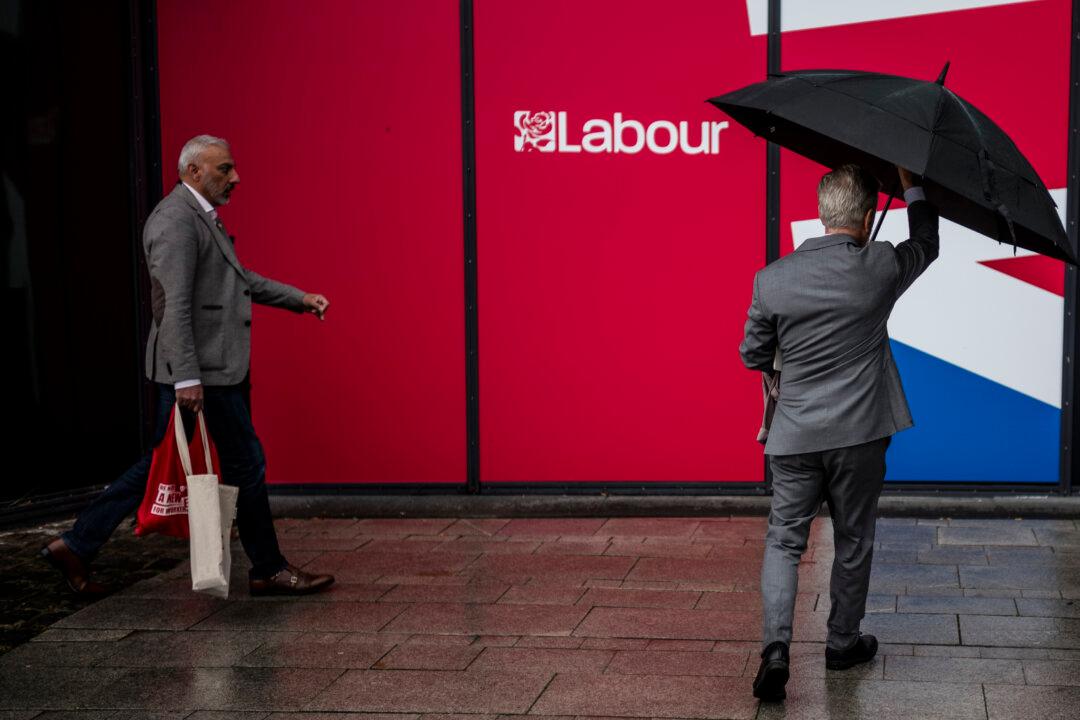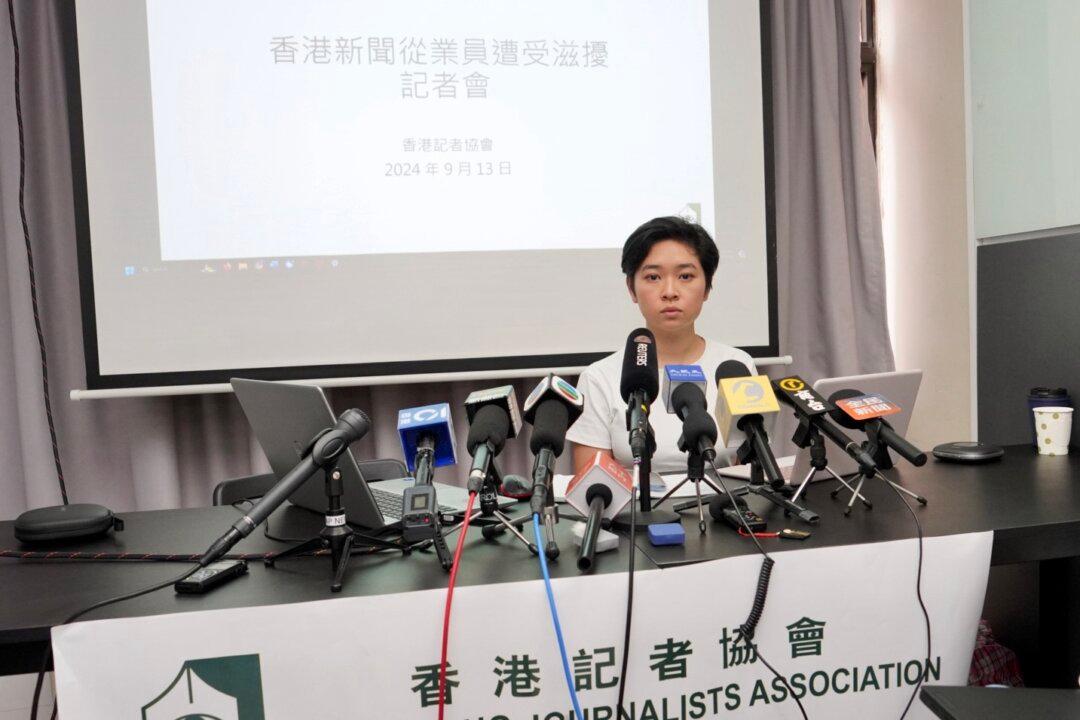Hong Kong street singer Oliver Ma, who had previously been arrested for singing “Glory to Hong Kong” on the streets of Hong Kong, was taken away by the police while busking in Macau a few days ago. He was detained for 13 hours and then deported and banned from entering Macau for one year. Mr. Ma said that he felt his life “was under threat” at the time and described it as the “most dehumanizing” detention he has ever encountered.
On Sept. 10, Mr. Ma posted on Facebook that he traveled to Macau with his family on Sept. 3. After lunch, he started busking near the Ruins of St. Paul’s. As soon as he finished the first song, the police arrived and demanded that he stop performing. He and his family were taken to the police station, where they were asked to sign several documents, which the police claimed were mere “records.”




